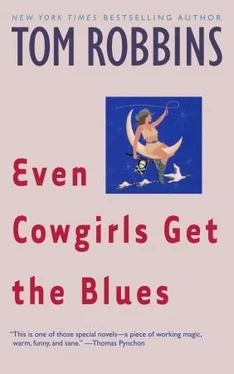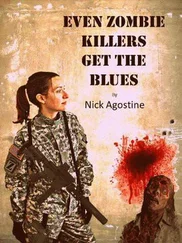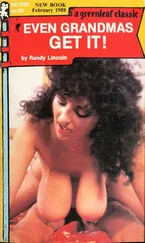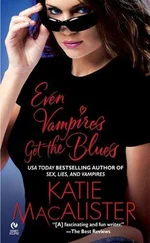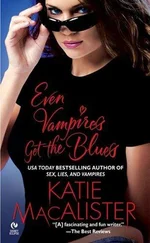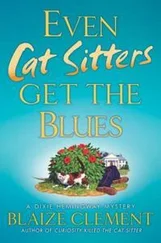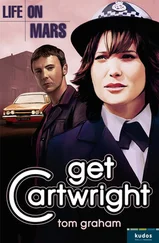What do you think of all that? Me, I guess I have to take Debbie's side this time. I might not be objective, however, because it's impossible for me to get pregnant. Result of being shot with a silver bullet.
Oh, Sissy, now I'm remembering your sweet hands on my scar!
In a few minutes, I'm going to return to the scene of our love. Last fall, Debbie and I left mountains of brown rice for the cranes to munch, and they stayed at the pond longer than they ever had in the past. This time we're going to try a different diet on them to see if they won't stay even longer.
By the way, you might be interested in knowing that the Chink survived the winter in fine shape. I'm visiting him once a week again. Now you know my little secret, huh? Well, I hear tell that you didn't exactly sit at his feet listening to Bible stories. Ha ha. He's really something, isn't he? The billy goat!
Let's see. Delores still hasn't had her Third Vision. Peyote is making her look green around the jaws. Billy West is going to try to snatch us a stereo because that goddamn radio plays nothing but polkas. Heather's eyebrow healed up fine. Big Red led a revolt against Debbie's cooking, so we're taking turns on the chuck wagon these days. Kym may have a poem published in Rolling Stone . Elaine has a bladder infection. I guess that's all the news for now.
Sissy you are such a special person. I can't tell you how much you mean to me. I hope you're happy. Oh, I know that you are. You're so on top of it you could never be unhappy. You're an example to us here.
I'm pretty happy myself. Riding the range in the spring sunshine I see my shadow against the grass and I swear that shadow extends far beyond this place. This prairie. This world. It's like my life is sparkling in every direction, through all of space and all of time. You of all people understand.
I love you,
Bonanza Jellybean
As if it were a gift neither expected nor deserved, the letter caused new life to begin in Sissy. Observing her, Dr. Robbins sensed this stirring. He knew that whatever it was would be hard to name and hard to trace — it always is. And he recognized that no doctor, not even in the name of healing, has a right to set his shoes among the bloomings of the human soul. He poured wine. He inhaled the garden (although not deeply, for East Eighty-sixth Street was but a wall away). He observed her. Sunlight enhanced her yellow hair, her fruit-taste complexion, her pouty lips. Sunlight even did something for the inflated rubber turkey legs that were her thumbs — although Dr. Robbins was not sure what.
“Tell me about this Chink,” said Dr. Robbins.
Sissy was ready. She let out a sigh that could have inflated the whole turkey. And then she told him everything.
57.
TO NEITHER THE SIWASH nor the Chinese does the Chink belong.
As are many of the best and worse contributions to the human race, the Chink is Japanese. With their flair for inventive imitation, the Japanese made the Chink.
He was born on an island in the Ryukyu chain. It was called an island, but in actuality it was a volcano, a half-submerged dunce cap that Nature had once placed on the noggin of the sea for forgetting which had come first, land or water. For centuries this volcano had sent shock after shock of purple smoke into the sky. It was a chain smoker. A Ryukyu chain smoker.
Upon the sides of this smoking volcanic cone the Chink's parents had raised yams and upon the sides of this smoking volcanic cone the little Chink had played. Once, when he was six, he climbed to the top of the volcano. His sister found him there, on the edge of the crater, unconscious from the fumes, his hair and lashes singed. He had been looking in.
When he was eight, he emigrated to the United States of America, where his uncle tended gardens in San Francisco. Dr. Goldman's garden was okay for a clinic in New York City, but the Chink's uncle would not have wanted one of his gardens to marry it.
The Chink picked up English and other bad habits. He went to high school and other dangerous places. He earned American citizenship and other dubious distinctions.
When asked what he wished to do with his life, he answered (although he had learned to appreciate movies, jukebox music and cheerleaders) that he wanted to grow yams on the side of a volcano — but as that was impracticable in the city of San Francisco, he became, like uncle, a gardener. For more than a dozen years he made the grass greener and the flowers flowerier on the campus of the University of California at Berkeley. Dr. Robbins would have admired his work.
By special arrangement with his employers, the Chink attended one class a day at the university. Over a twelve-year span he completed a good many courses. He never graduated, but it would be a mistake to assume he did not receive an education.
He was astute enough to warn his relatives, on December 8, 1941, the day after Pearl Harbor, “The shinto is gonna hit the fan. We'd better get our yellow asses back to some safe volcano and eat yams till this blows over.” They didn't listen. After all, they were patriotic, property-owning, tax-paying American citizens.
The Chink wasn't anxious to flee, either. He was in love again. Camping on the rim of a different volcano. So to speak.
On February 20, 1942, came the order. Two weeks later, the Army took steps. In March, evacuation was in full swing. Some 110,000 people of Japanese ancestry were moved out of their homes in “strategic” areas of the West Coast and settled in ten “relocation” camps further inland. They could bring to camp only what they could carry. Left behind were houses, businesses, farms, home furnishings, personal treasures, liberty. Americans of non-Nip ancestry bought up their farmland at ten cents on the dollar (The crops failed). Seventy percent of the relocated people had been born and reared in the U.S.
“Loyal” Japanese were separated from “disloyal.” If one would swear allegiance to the American war effort — and could pass an FBI investigation — one had the choice of remaining in a relocation camp or finding employment in some nonstrategic area. The camps were militaristic formations of tarpaper barracks, supplied with canvas cots and potbellied stoves. Six to nine families lived in a barracks. Partitions between “apartments” were as thin as crackers and did not reach the ceiling (Even so, there were an average of twenty-five births per month in most camps). There was no great rush to leave the camps: a loyal family that had been relocated on an Arkansas farm had been killed by an irate anti-Jap mob.
Disloyal Japanese-Americans — those who expressed excessive bitterness over the loss of their property and the disruption of their lives, or who, for various other reasons, were suspected of being dangerous to national security — were given the pleasure of one another's company at a special camp, the Tule Lake Segregation Center in Siskiyou County, California. The Chink had been asked if he supported the American war effort. “Hell no!” he replied. “Ha ha ho ho and hee hee.” He waited for the logical next question, did he support the Japanese war effort, to which he would have given the same negative response. He was still waiting when the military police shoved him on the train to Tule Lake.
Tule was even less of a lake than Siwash. It had been drained so that land could be “reclaimed” for farming. Reclaimed! Which came first, land or water? Give the wrong answer, you have to sit in a corner with a volcano on your head.
The detention camp had been built on that part of the dry lake bottom that was unsuitable for cultivation. However, the inmates (or “segregees,” as the War Relocation Authority preferred to label them) were put to work on surrounding farmland, building dikes, digging irrigation ditches and producing crops that proved once again that the greenest thumbs are often yellow.
Читать дальше
